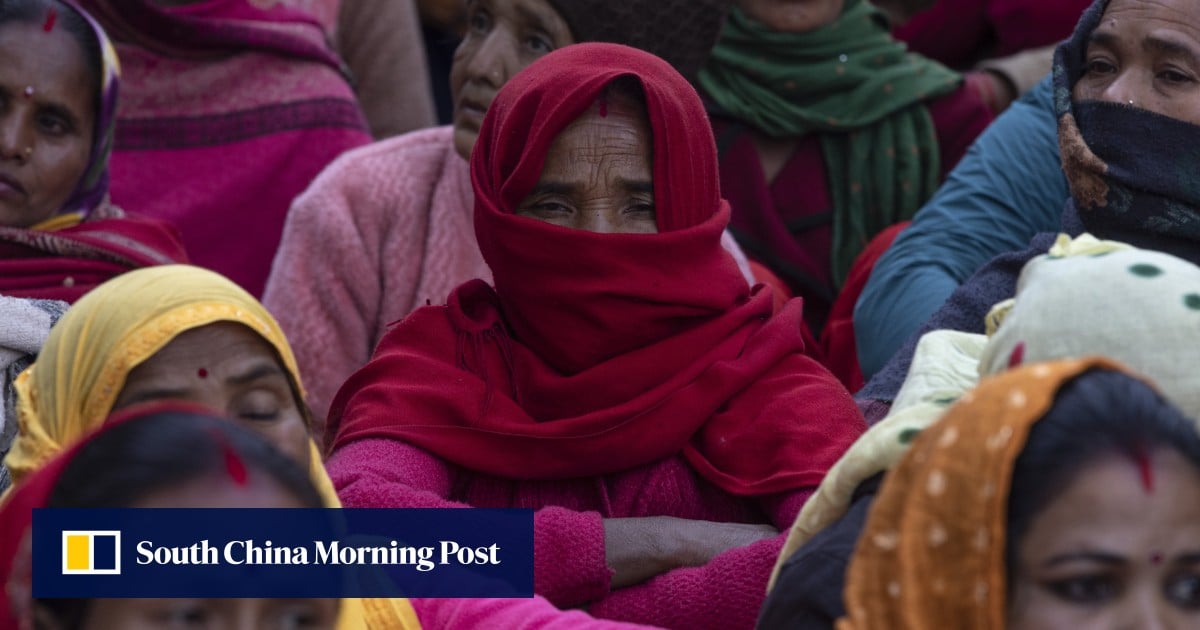Many rural residents in Nepal turn to local money lenders due to limited access to financial institutions and complex loan process in banks. The lenders often end up taking advantage of desperate situations and illiteracy, either by charging borrowers high interest rates that multiply quickly, or deceiving them into signing documents with higher principal amounts.
“The current protests reflect the unequal power relations across the borrowers and lenders, which are often predatory,” said Mishra, an associate professor at Stetson University in the United States.
“Because it is an informal and inefficient market for lending, the perpetual debt for families cripple them economically, harming the overall economy of the country.”
Debtors like Thakur said that money lenders also harass and threaten them, while confiscating their property for not repaying on time.
“My husband is so stressed about repaying the debts that he has now drowned himself in alcohol,” Thakur said. “We need justice.”
Why more Nepali women are migrating for work amid risk of abuse and torture
Why more Nepali women are migrating for work amid risk of abuse and torture
In April, the government struck an agreement with loan shark victims and formed a commission to address their demands after they protested in the capital. A few months later, lawmakers passed a bill criminalising “unfair transactions” using fraudulent loan deeds and exorbitant interest rates, with violators facing seven years in prison and fines of up to 70,000 rupees (US$530).
But the current demonstrators in Kathmandu, who initially camped under open skies and now moving from one shelter to another, said the new law had not translated into meaningful outcomes.
Mukesh Yadav, leader of the victims’ group from Mahottari, said he had attended several unfruitful meetings with district administration officials. He alleged that money lenders bribed lower level government workers to delay processing their cases.
“They victimise the victims even more,” he said.
Yadav also borrowed 300,000 rupees from a local lender four years ago and now owes him nearly three times more. He added many lenders secretly add higher than the agreed upon interest rates after signing the loan deeds.
Mohna Ansari, lawyer and former commissioner of the National Human Rights Commission, said even though the current Maoist government had waged a decade-long insurgency for the rights of the poor and marginalised, its leaders had not been able to follow the party’s values. She said most Nepali political parties, claiming to have socialist agendas, provided some form of protection against loan sharks.
“It is an open secret that they have political protection,” she said. “There are laws, but who will implement and monitor them? The local government should ensure the laws are implemented, but there is so much corruption that police and officials often end up aiding money lenders.”
Nepal ranked 108 out of 180 countries and regions in Transparency International’s corruption perceptions index 2023.
Ansari added the government should focus on addressing the “serious issue” and come up with effective solutions instead of indulging in “public stunts by creating commissions after commissions”.
Nepal’s overworked, underpaid nurses quit jobs to head abroad: ‘no future here’
Nepal’s overworked, underpaid nurses quit jobs to head abroad: ‘no future here’
In December, the commission formed early last year to address the woes of loan shark victims said local authorities had resolved more than 5,000 of the 27,500 complaints received, though demonstrators believe the real number could be much higher. Money lenders also agreed to return some 147 hectares of land to their rightful owners through reconciliation, and claimed to settle for lower amounts with the debtors.
But Yadav does not see that as a breakthrough, and negotiations with government officials this week have remained inconclusive so far.
During a National Concern and Coordination Committee meeting on Wednesday, Prime Minister Pushpa Kamal Dahal acknowledged that certain loan shark-related issues remained unsettled despite having a relevant law, and they should now be resolved through a judiciary process.
But the demonstrating loan shark victims have additional demands, including a streamlined process to lodge complaints, legal actions against money lenders with unfair transactions, compensation to the victims, and an investigation into the alleged harassment and sexual abuses committed by lenders.
“They are looting us, so this time we will stay in the capital as long as our demands are not met,” Yadav said.
Other victims like Thakur are also determined to peacefully protest for as long as it takes. She urged the authorities to act in their favour instead of protecting the money lenders.
“I hope we get justice this time, or else we might just die burdened with loans,” she said. “We have lost our houses and lands and now we are on the streets. Where do we go from here?”

